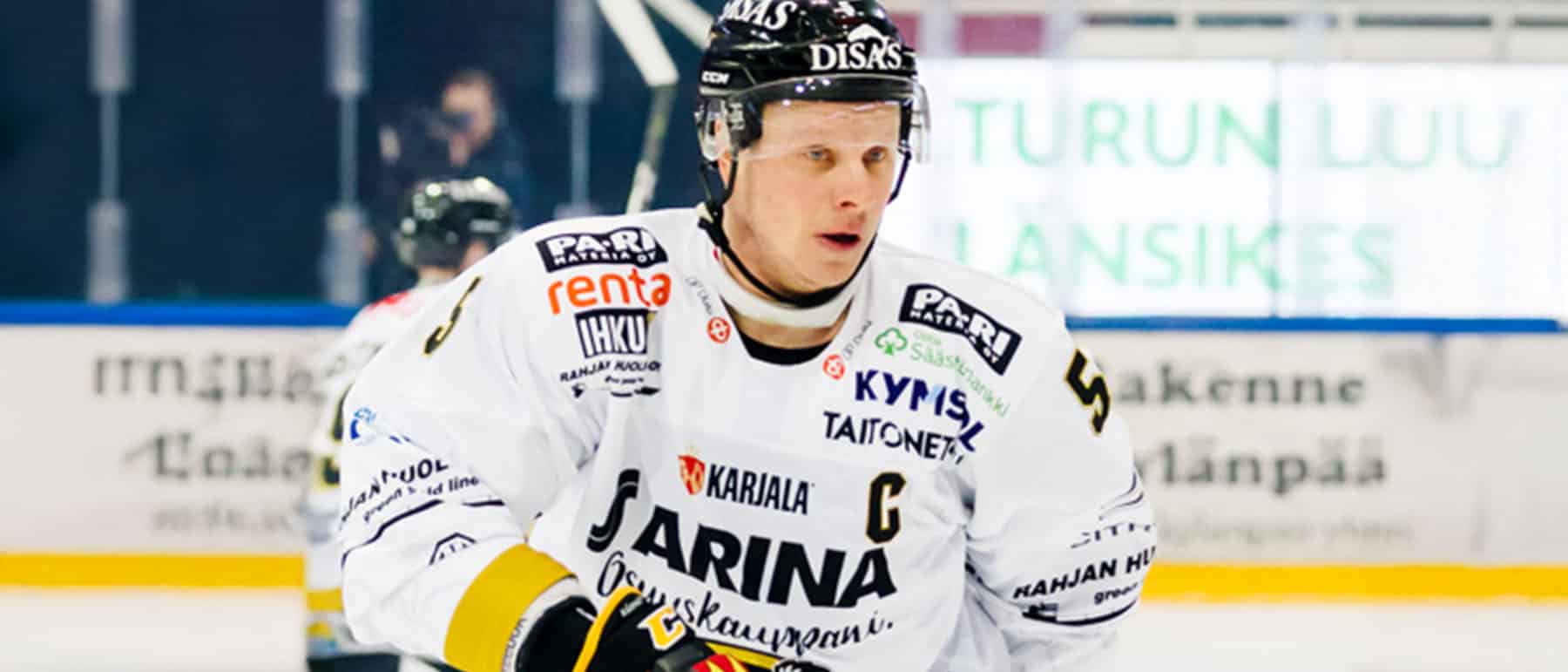I spoke with him from a shared DNA: sport as the foundation for who we are as business partners. My own journey began in 1976, as an 11-year-old boy with Olympic dreams inspired by Ivo Van Damme’s achievements.
Although I never became an Olympic champion, intensive sport shaped my career and mindset. It is probably no coincidence that my motto today is: “If better is possible, good is not good enough.”
The leap from the runway
“I stopped professional hockey in 2020 and started my own coaching practice,” Lasse explained. “In the beginning, it was uncertain. I didn’t have a large network outside the sports world, but I had my reputation and the skills I had built.”
His first clients came through warm contacts and from people who valued him as a person, not only as a former athlete. Authenticity proved decisive. This emphasis on trust and relationship is essential in professional services like business development, leadership coaching, and strategic advisory—fields where no law mandates our engagement.
Unlike regulated sectors like accountancy or audit, our work is entirely discretionary. Morgan and Hunt (1994) show that trust and relationship drive long-term client loyalty, surpassing even price or product.
Navigating complex airspace: one person, big ambitions
“The hardest thing as a solo entrepreneur,” says Lasse, “is doing everything yourself. Sales, administration, coaching, invoicing—each day only has 24 hours, and you want to maintain your standards.”
I immediately recognize that tension. In non-mandatory professional services, you have big ambitions but limited resources. You must choose: where do you invest your energy?
At Add Business, the principle is clear: focus on clients with the right DNA and dare to say no to those who don’t fit.
Lasse adds: “Nick Rubin from Nordic Business Forum said: you don’t have to know everything before you start. That gave me peace. Learning is part of the process.” Humility combined with perseverance is what elite sport teaches us. You lose more often than you win, but progress depends on showing up.
From cold contacts to warm conversations
I asked Lasse how he finds new clients today. His answer was clear:
“First and foremost, I’m more active in meeting people. That’s why I was at the Nordic Business Forum. I need to go where new people are; otherwise, I’ll never meet them.”
He also reactivates his existing network: “I call former clients and ask: is there something we can do together? Even one new introduction can make a difference.”
No cold campaigns—only personal meetings, lunches, and warm introductions. Bhatia and Yetton (2020) confirm that in professional services, personalized outreach and referrals deliver significantly higher conversion rates. In fields where no one feels an urgent need for our help, building trust and visibility is the essence of business development.
DNA-match: recognizing the right client
“I look for clients with a learning mindset,” says Lasse. “People open to growth and change. I avoid working for clients who just want someone to come and shout at their team. That’s not my approach.”
Both of us know not every potential client fits our philosophy—and saying ‘no’ to mismatches proves as important as saying ‘yes’ to the right ones. In non-mandatory professional services, this selectivity becomes a necessity.
Research shows that focusing on ideal clients—rather than mass marketing—yields the strongest long-term results.
Sport as metaphor: teamwork and connection
Lasse learned on the ice what collaboration really means: “You don’t have to be best friends, but you can respect and value people for what they bring.”
In business development, endurance, self-discipline, and resilience are just as critical. Nahapiet and Ghoshal (1998) describe this as relational capital: the ability to create value through respectful, professional connections, across differences.
This is invaluable in professional services where engagement is always a choice, never an obligation. Building bridges is what grows a market when demand must be created, not fulfilled.
Cultural intelligence: Finland, Belgium, and the power of modesty
We also talked about cultural differences. Lasse described how Finns often doubt their ability to succeed abroad—they’re modest, sometimes too much so. In Flanders, we see the same paradox: pride mixed with constant self-questioning. By working together, we transform modesty into confidence.
He gives me insight into Finnish business culture—honesty and teamwork—while I help him navigate the Belgian ecosystem. Together we build Networks Beyond Borders: human bridges between economies.
Earley and Ang (2003) identify this capacity to work across cultures as a real competitive advantage—especially in professional services with global, voluntary clients.
Helping each other as solos: why 1+1=3
We discovered that solo entrepreneurs can go further together. Not by selling for each other, but by sharing networks and supporting mutual growth.
Granovetter (1973) argues that weak ties—distant or secondary contacts—are vital for unlocking new opportunities. For professionals whose services no client truly ‘needs’ until they choose to, collaborative ecosystems multiply your reach and credibility.
Lessons from this conversation with Lasse
- Authenticity trumps credentials. Clients choose people who inspire confidence and growth.
- Warm relationships beat cold outreach. Events, introductions, and networks create fertile ground.
- DNA-match matters more than volume. Serving clients who truly fit brings satisfaction, even if the pool is smaller.
- Patience and perseverance are essential. Progress is slow, but real.
- Demand must be created, not waited for. In a world where our services are never ‘required,’ visibility, credibility, and relationship-building are the core of business development.
Conclusion: charting a course with sport in the DNA
From Olympic dreams to ice hockey careers, sport shapes both mindset and method. In discretionary professional services, nobody is waiting for us, and that makes our work both challenging and rewarding. Succeeding here depends on creating genuine demand: through connection, insight, and continuous proactive engagement—everything sport has taught us.
If better is possible, good is not good enough.
References
- Bhatia, Amit, and Philip Yetton. 2020. “Personalization in B2B Sales Outreach: Effects on Engagement and Response Rates.” Journal of Business Research 116: 375–86.
- Earley, P. Christopher, and Soon Ang. 2003. Cultural Intelligence: Individual Interactions Across Cultures. Stanford, CA: Stanford University Press.
- Granovetter, Mark S. 1973. “The Strength of Weak Ties.” American Journal of Sociology 78 (6): 1360–80.
- Morgan, Robert M., and Shelby D. Hunt. 1994. “The Commitment-Trust Theory of Relationship Marketing.” Journal of Marketing 58 (3): 20–38.
- Nahapiet, Janine, and Sumantra Ghoshal. 1998. “Social Capital, Intellectual Capital, and the Organizational Advantage.” Academy of Management Review 23 (2): 242–66.
Ready to land in Belgium?
Discover how your company can land smoothly in Belgium — with a co-pilot who knows the terrain, the networks, and the fastest route to success.

